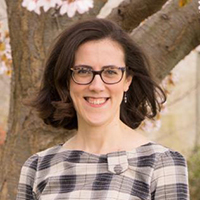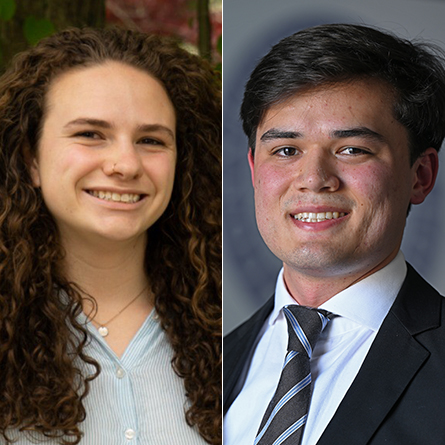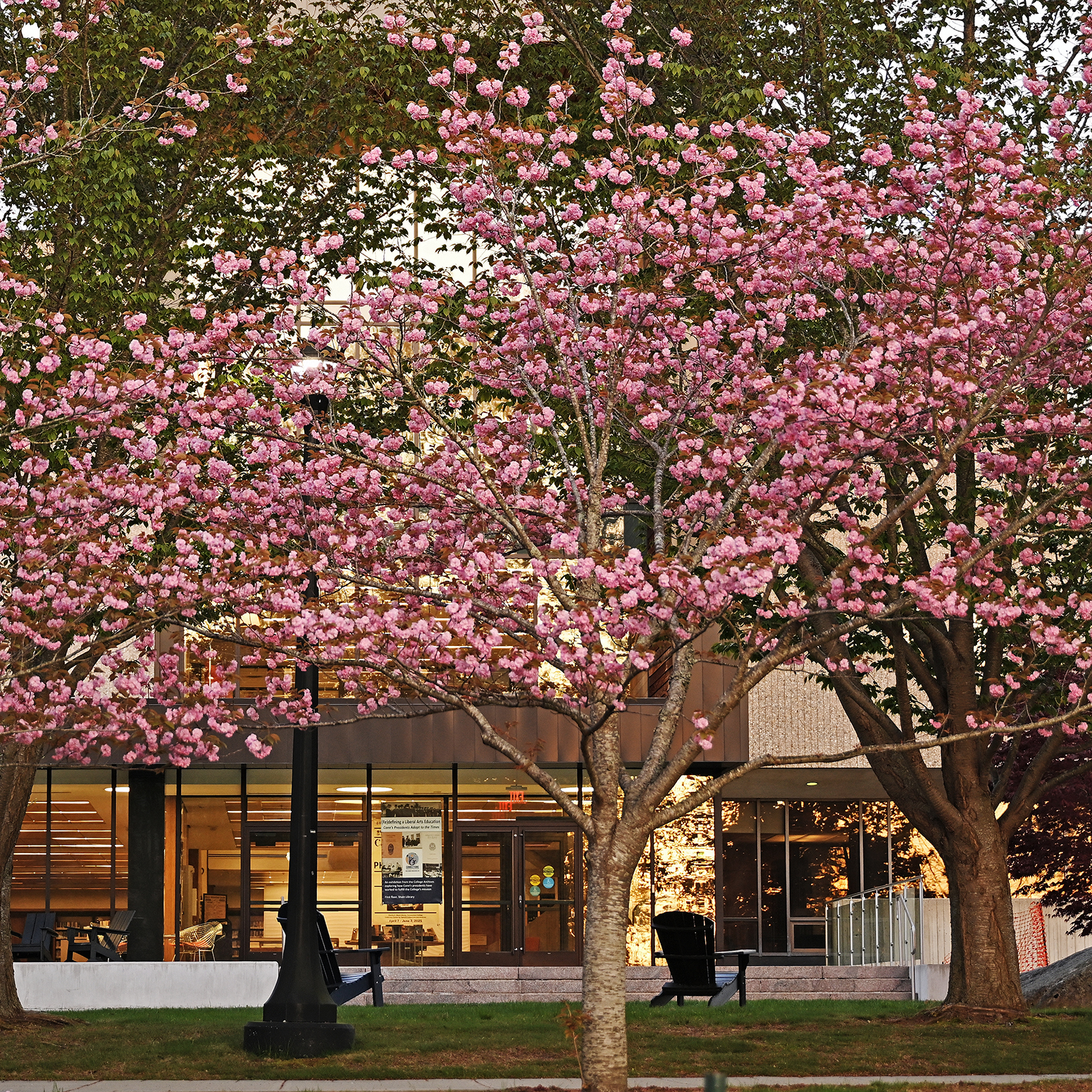
Recent grads present thesis research at national botany conference
Two Connecticut College botany majors who graduated in May presented at the Botany 2023 national conference in Boise, Idaho, held July 22-26. Sam Pelletier ’23 and Matthew Yamamoto ’23 gave talks on their senior honors thesis research.
Yamamoto’s thesis, “Comparing Long-term Patterns of Spread of Native and Invasive Plants in a Successional Forest,” uses advanced statistical analysis to study the patterns of spread for native and invasive (or non-native) plants over 70 years and draws important conclusions about invasive plant ecology.
One of his overarching conclusions is that invasive plants appear to behave much like native plants in terms of how they colonize a new area, despite a common theory among scientists that invasive plants are fundamentally different in their colonization patterns.
Yamamoto found invasive plants did not appear to spread farther or occur in areas with more light than native plants, nor were they invading a wider variety of sites than native plants. Another key finding is that the initial age of a forest was the most important factor for native species and even more so for invasive species—even when controlling for factors such as light availability that vary with forest age.
“Getting to participate in this conference was a great way for me to transition from undergrad to graduate school,” Yamamoto said. “It was rewarding to talk about my thesis with other researchers and it was helpful to get to connect with some of the scientists I will be working with moving forward. I got a better idea of the current needs in botanical research, which has helped me plan how I will work to meet those needs so that people can continue to benefit from plants, one of the planet’s most valuable natural resources.”
Pelletier’s thesis, “The Yucca Auxin Biosynthetic Genes and Drought: How Does Gene Expression Change in Water-Stressed Leaves?”, explores how plants respond to water stress as drought becomes more pronounced due to climate change. Plants have reduced growth when experiencing drought, so she explored the hormonal response of the Poplar tree when experiencing water stress, as hormones in plants regulate their growth and development.
She conducted an experiment to better understand the biosynthesis of the phytohormone auxin by looking at the gene expression of the Yucca genes in Poplar trees, since Yucca proteins catalyze the majority of auxin production.
Pelletier found evidence that auxin biosynthesis is reduced in most tissues for most Yuccas. However, she said, some results were inconclusive due to an unexpected effect of the drought treatment, which underscored the need for further research.
“I am so grateful that I got to experience the botany conference. Not only did I meet so many people across disciplines, but I also learned so much every day. Presenting at the conference was something that developed a ton of skills that I will use in my career, including communicating results to a wide-ranging audience,” Pelletier said.
Both graduates were awarded Conn’s R.H. Goodwin Environmental Research Fellowship, an endowed fellowship that funded their research and paid for their conference and travel, and both were recently recognized with the Botanical Society of America Young Botanist Award.
Yamamoto was also awarded the Oakes and Louise Ames Prize for most outstanding honors thesis at Commencement and was selected to give his talk as part of a themed colloquium, remarkable for an undergraduate. Pelletier also presented a poster on research she conducted with Seth Stadheim ’24, a biology major and varsity hockey player. Stadheim was unable to attend the conference but is first author on the poster.
Pelletier is now working as a laboratory technician in Margaret Franks’ lab at Cornell University. Yamamoto is working this summer as a biological science technician doing vegetation management at Sequoia and Kings Canyon national parks. He will pursue a master’s degree in botany at the California Botanic Garden and Claremont Graduate University this fall.

